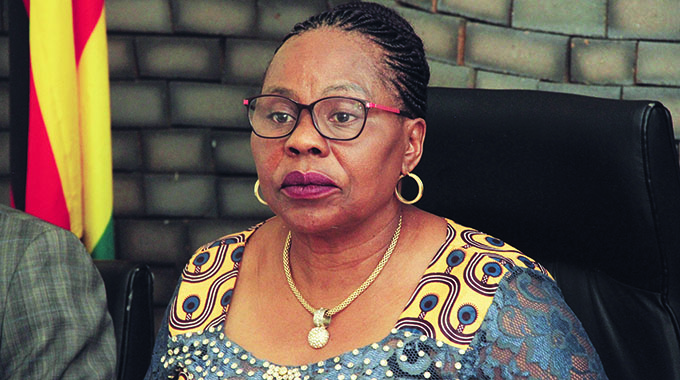‘Resource curse’ hangs over Muzarabani oil hunt

Golden Sibanda
INVICTUS Energy, the Australia firm currently exploring for oil and gas in the Muzarabani area, is almost certain to face demands from residents and the local leadership to prioritise employment of locals and investment in community initiatives like road, bridge and dam construction if it makes a commercial discovery.
There already are growing calls for transformative investment, by the local communities surviving out of not so productive farming in the almost semi-arid region. This comes as the Australia Stock Exchange listed oil and gas exploration firm prepares to start drilling two test wells in October next year.
Discovery of oil or gas can reinvigorate the usually sleepy outbacks of predominantly rural Muzarabani and entire Dande/Zambezi valley, a dry region stretching from the foot of Mavuradonha range, transforming it into hive of activity and bringing huge development potential, once the oil drilling starts.
Research shows that the association between the resource rich environment and conflicts with locals is varied and complex and if not handled well, resource issues can create major problems for investors.
The causes of environmental conflicts vary across the globe and their manifestations differ considerably.
Causes of conflict over resources can range from control over vital environmental resources such as fossil fuels to contestations over natural resources at the community and/or household level.
Conflicts can manifest in various ways — from outright wars and even genocide to disagreements at the local level and it is against this background that Invictus needs total buy in from locals for its oil and gas project.
In wide ranging interviews during a recent visit to Muzarabani, residents and traditional leaders (chiefs) demanded that the Australia firm should give priority to locals for jobs that do not require less or little specialist skills.
Further, they demanded that the company must direct significant investment into key developmental projects that will uplift the outlying rural communities, including building better roads, dams, bridges, schools and health facilities when they start exploiting oil or gas, in the event of successful discovery.
Most of the infrastructure such as bridges in the Muzarabani area including Mushumbi Pools and Muzarabani Growth point are in poor state, while most roads are not surfaced.
At national level, the expectation is that the commercial discovery of oil and gas in Muzarabani would transform the economic fortunes of Zimbabwe through investment in key infrastructures like roads and bridges, job creation, health facilities, export earnings generation and revenue for central Government.
The early demands for community centred development initiatives come as Invictus Energy has completed field work for data collection and seismic studies as part of the final lap of research, to prove possible existence of oil and gas in the area ahead of test well drilling scheduled for October next year.
Already, further reinterpretation of a US$30 million data set, which Invictus acquired from Mobil following studies in the early 1990s, has revealed significant potential for the existence of oil and gas in Muzarabani.
The junior exploration company has also already facilitated traditional ceremonies through four local chiefs, Chief Muzarabani, Chief Hwata, Chief Chiweshe and Chief Kasekete who border the prospective area, in order to appease ancestral spirits before field works began earlier this year ahead of test well drilling.
Muzarabani district administrator Mr John Chihobho said Invictus Energy came through his office, which initiated the formalities that enabled the company to start engagements with local chief for traditional rituals before it started field operations in October ahead of commencement of drilling 12 months later.
The local chiefs warned, that if certain rituals are not followed, the area may not yield as much resource as is (according to preliminary evidence) abundantly available if local ‘traditional spirits’ are unhappy.
“This is not much I can say about the project, before which higher authorities have not said. The President himself only spoke once about it, so I cannot say much, except to say the company came through us and we made arrangements for them to meet the local chiefs,” Chief Muzarabani said.
In an extensive interview, Chief Muzarabani said it had been a while since they got to know about the potential oil or gas in the Muzarabani area until now when the project is reportedly ready to take off.
“We also saw for ourselves when we dug wells for water for our own consumption, but we realised we could not use water from certain areas for drinking purposes because it was oily.
“Experts came here and they concluded that the water was not fit for drinking because it had oil.
“ They also discovered that the area had potential for (conventional) gas and it is more gas prone than oil,” he said.
Chief Muzarabani said while the traditional leaders and spirit mediums that were consulted on rituals that should be fulfilled before oil drilling starts had welcomed the initiative, the process had not and should be completed without fail.
However, he stressed the point that in the event of successful discovery of oil or gas, the Australian company should give priority to job opportunities for locals and benefit the residents of these communities first.
“Jobs should be made available first to locals while other development projects should come through as a result of this initiative. We welcome this project, but we also have a lot of aspirations.
“We must not repeat what happened in Chiadzwa where people from other places were first to benefit (diamond rush), and go away to develop and build nice houses in plush suburbs like Borrowdale in Harare.
“You find miners dug up all over the places and left the land degraded while the local people were left with very little or nothing. So we expect this project to develop this area first in terms of things like roads, bridges and water.
“We had some project proposals that were already in place such as Mavuradonha dam. Right now, it has been on standstill for a long time because of lack of funding. If we can have that, Muzarabani will develop fast. We hope this project will help us fulfill plans and aspirations we already have,” he said.
Chief Muzarabani said the project should not go ultra vires the wishes and aspirations of residents, traditional leaders and spirit mediums because all may not be well for the project in the long run because any friction can cause fight.
A headman in same chiefdom, Louis Ganyawu said it would be amiss if Invictus gives priority to employing people from far flung areas in the event that it discovers the oil or gas it is searching for.
“They should give the low skilled jobs to people from the area, we would not want to see a situation where people from as far as Gokwe and Buhera get the jobs first, the project must benefit us first,” he said.
Another local chief, Chief Hwata said it was their expectation that the Invictus oil project will bring about significant development in the form of better roads and employment creation for locals.
“The project should develop the area, we expect to get better residential houses, roads and bridges among other things. This project must succeed and we can see it is making good progress,” said.











Comments